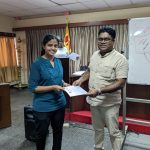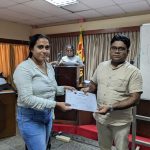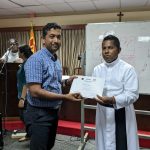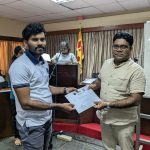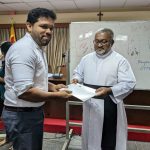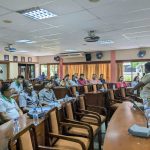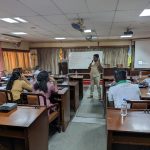Caritas Sri Lanka organized a capacity-building workshop on advocacy and lobbying for both its National Center staff and diocesan-level staff. The workshop took place on September 11th and 12th at the CSL-SEDEC auditorium, with 65 participants from the Diocesan Centers and the National Center. The workshop was conducted in both Sinhala and Tamil mediums, with Mr. Lasantha Premachandra, Regional Advocacy Advisor (South Asia and Pacific Region) from World Vision International leading the Sinhala sessions, and Mr. Benjamin Anandarajah Thasan, Trainer in Community Mobilization and CVA (advocacy), facilitating the Tamil sessions.
Advocacy and lobbying are powerful tools for individuals, communities, and organizations to make their voices heard by those in positions of power. These efforts foster a sense of community and solidarity, enabling people to advocate for their causes and provide practical support to address the challenges faced by their communities. When communities are well-versed in advocacy and lobbying, any project implemented within them stands a better chance of sustainability.
The primary focus of the workshop was to educate participants on the various types and fundamental components of advocacy and lobbying. It was highlighted that advocacy can be categorized into three types: advocating with the people, advocating for the people, and advocating by the people. Additionally, the workshop emphasized the involvement of three major bodies in advocacy campaigns: right holders, duty bearers, and power holders. Role-play exercises were also conducted to provide practical insights into conducting advocacy campaigns.
The resource persons further underscored the significance of advocacy as a central component of projects, as it can lead to the formulation of new policies, revisions to existing policies, or the implementation of policies that are not currently in practice. As a result, advocacy campaigns can operate at various levels, ranging from the local to national levels. The workshop facilitators also provided detailed explanations about the use of the Right To Information (RTI) tool in advocacy campaigns.
Moreover, the workshop included a comprehensive discussion of the processes involved when an organization is preparing for an advocacy campaign. It was emphasized that staff members involved in the project should have a deep understanding of the issues at hand and relevant applicable policies before commencing the advocacy campaign.
The workshop concluded with an open forum discussion, allowing participants to engage in further dialogue and exchange ideas.
This capacity development workshop was conducted under the project Stepping Stones to Safeguarding Sri Lanka’s Natural Environment Project (SSEP) funded by Misereor.



